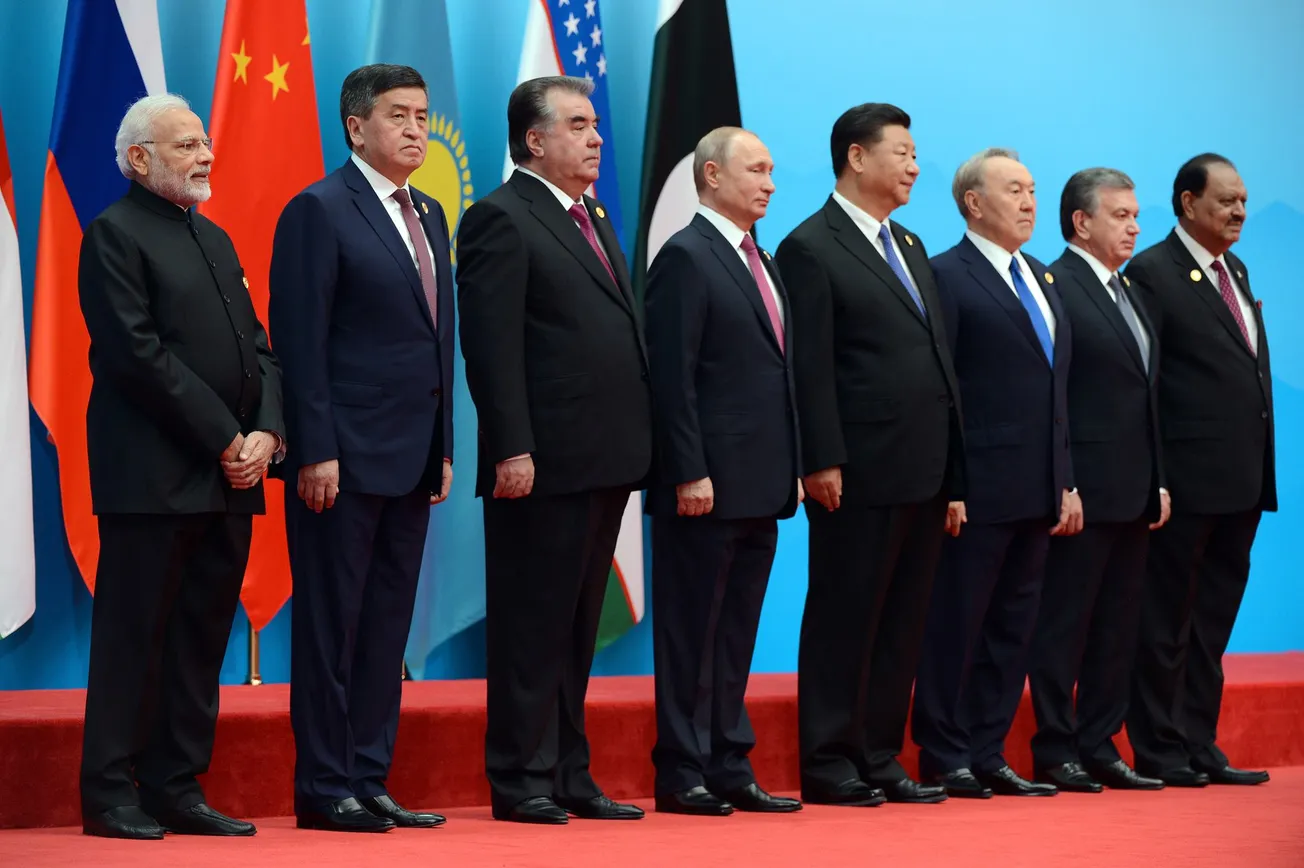The July 3-4 Shanghai Cooperation Organization Council of the Heads of State in Astana, Kazakhstan, opens with all of the member nations, except one. These include founding members, China’s Xi Jinping and Russia’s Vladimir Putin. While the organization was founded in 2001 to primarily deal with terrorism, which it still does, it is also heavily focused on economics.
The SCO’s nine permanent members are China, India, Iran, Kazakhstan, Kyrgyzstan, Pakistan, Russia, Tajikistan, Uzbekistan; and this year, Belarus, which was an observer, will become a permanent member. India is represented this year by its Foreign Minister S. Jaishankar. Mongolia is an observer, as is Afghanistan (which is not attending); and the SCO’s 14 dialogue partners are Armenia, Azerbaijan, Bahrain, Cambodia, Egypt, Kuwait, Maldives, Myanmar, Nepal, Qatar, Saudi Arabia, Sri Lanka, Türkiye, and the United Arab Emirates. Among these 26 countries are most of the nations of Central Asia, of Southwest Asia, as well as two ASEAN members, reports The Diplomat.
The June 30 China Daily, in an article, “Xi Attendance To Help SCO Pool Strength,” reports: “President Xi Jinping’s attendance at the upcoming Shanghai Cooperation Organization summit in Astana, is part of a major diplomatic move by Beijing toward its neighbors and will give a strong boost to the building of the SCO community with a shared future…. Xi has attended the SCO summit for 11 consecutive years since 2013 and delivered speeches to each gathering in a face-to-face or virtual format. He has frequently emphasized the need to carry forward the ‘Shanghai Spirit’—a tenet of the grouping that features mutual trust, mutual benefit, equality, consultation, respect for cultural diversity and pursuit of common development.”
A fascinating article in the July 2 Tehran Times, “SCO To Drive Economic Co-op of Developing Countries in Eurasia,” proposed: “In the sphere of economic integration, the SCO could become the main platform for the Eurasian developing economies—the trend of closer South-South integration is taking on a greater scale with a rising number of developing economies joining the SCO.” It does not see this in conflict with the BRICS. On the contrary, it notes that the expansion of the SCO “has progressed in tandem with the expansion of the BRICS,” and the “scope for greater coordination of the SCO and the BRICS” can be increased.
The Tehran Times proposes that “the SCO economies need to devise platforms for financing large-scale infrastructure projects in Eurasia…. The SCO economies could accordingly discuss the creation of a platform for national and regional development banks that would co-finance projects in the infrastructure sphere. Another option to explore is the creation of an SCO development bank that would complement the efforts of other development institutions in bridging Eurasia’s ‘infrastructure gap.’”



